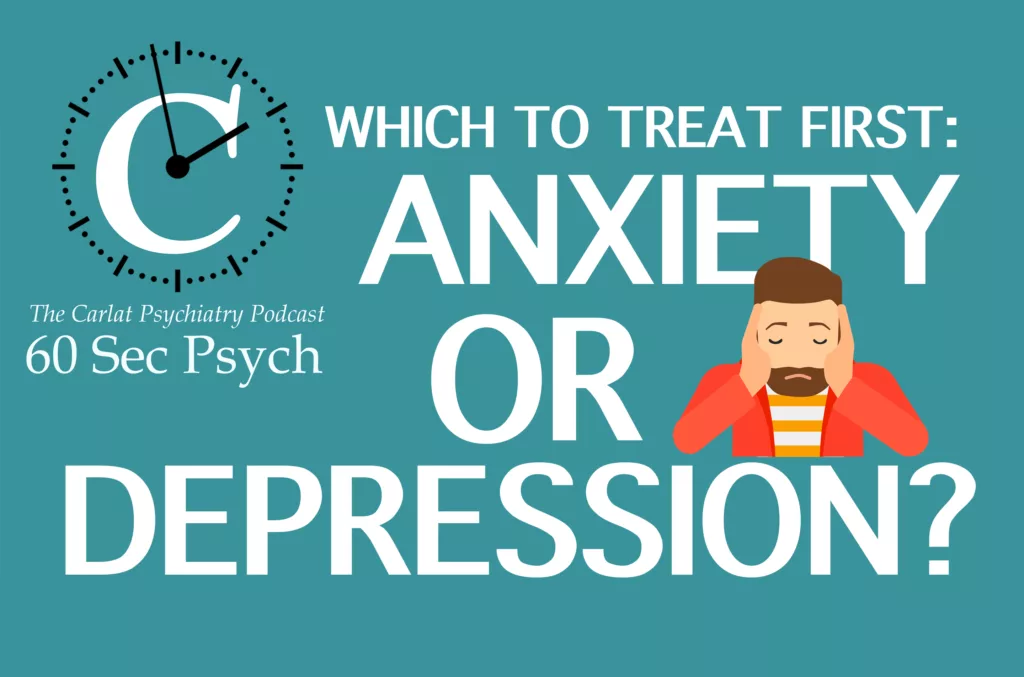This month Dr. Jan Spiker and colleagues from Amserdam published an editorial on how to approach comorbid depression and anxiety. They base their suggestions on two recent meta-analyses that found comorbid symptoms decreased when the more clinically significant disorder was treated. Spijker J, Muntingh A, Batelaan N. Advice for Clinicians on How to Treat Comorbid Anxiety and Depression [published online ahead of print, 2020 Apr 15]. JAMA Psychiatry. 2020;10.1001 [Link]
Published On: 6/19/2020
Duration: 2 minutes, 29 seconds
Transcript:
Depression and anxiety often occur together, and we don’t have a good system to figure out which one is the primary disorder. DSM-5 lumps most of these under the broad umbrella of “anxiety specifier,” recognizing that the presence of anxiety is important ─ as it predicts a worse outcome ─ but that we haven’t figured out much that’s more specific than that.
This month Dr. Jan Spiker and colleagues from Amserdam published an editorial on how to approach comorbid depression and anxiety. They base their suggestions on two recent meta-analyses that found comorbid symptoms decreased when the more clinically significant disorder was treated. Here are some clinical pearls from the editorial:
Start treatment for the more significant disorder first, rather than the one that started earliest in the patient’s life history. In practice, the “most significant” is usually the one that the patient is most concerned with.
- Combined psychotherapy and medication are ideal for patients with depression and anxiety. If targeting anxiety, CBT is going to be more effective than other kinds of psychotherapy. However, if targeting depression, there are many forms of psychotherapy that can work, including CBT, mindfulness, behavioral activation, and interpersonal psychotherapy. In fact, interpersonal psychotherapy – or IPT – was designed to mimick what the average eclectic psychotherapist was doing in the 1970’s, and it’s proven to work as well as CBT.
- There’s even evidence for psychodynamic therapy in treatment resistant depression – an intensive form developed by Habib Davanloo called Intensive short-term dynamic psychotherapy (ISTDP).
- They recommend SSRIs and SNRIs as first line medications for comorbid anxiety depression.
- When using medications, educate the patient that the anxiety may worsen at first. Some patients may require a short term benzo prescription or a slow and easy titration of the antidepressant to overcome initial side effects.
- Always attend to the patients motivation and engagement. Recovery from comorbid anxiety and depression usually takes longer than when one disorder is present.
Got feedback? Take the podcast survey.


_-The-Breakthrough-Antipsychotic-That-Could-Change-Everything.webp?t=1729528747)



